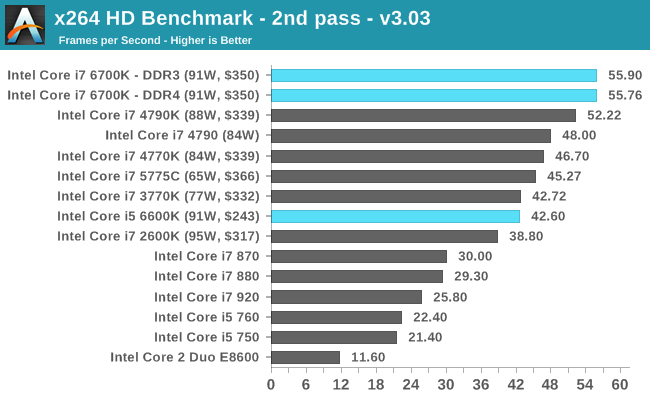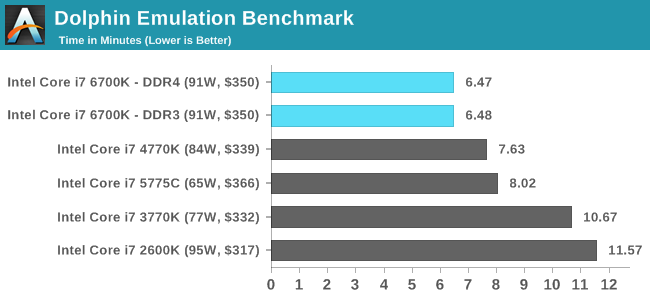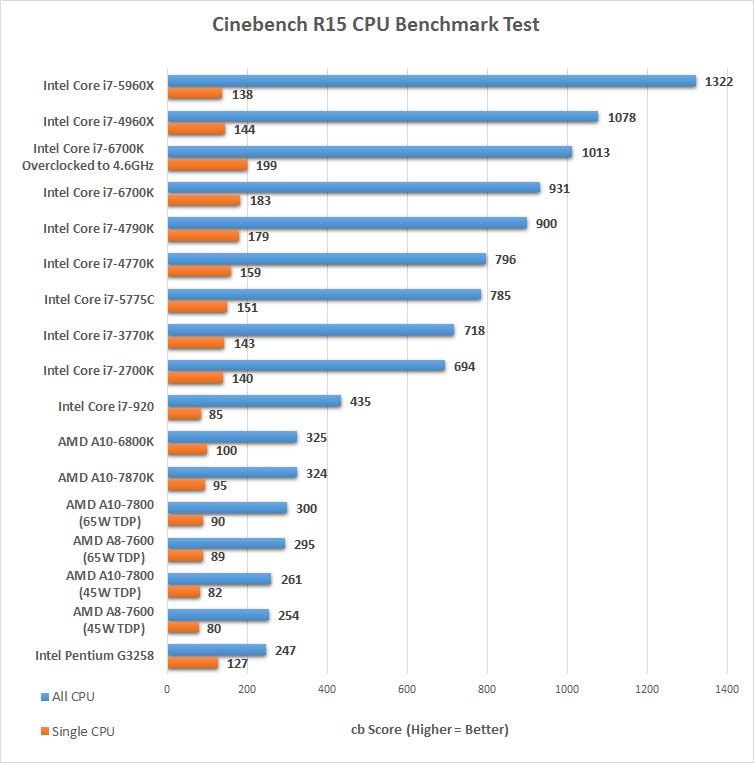AtenRa
Lifer
- Feb 2, 2009
- 14,003
- 3,362
- 136
Also, do I need to remind people in this thread that we will have i7 6800K-6950X and i7-7700K before Zen drops? It's funny how Zen launches in late 2016 so we should compare it to 5820K/6700K? I might as well make the argument straight up that if Zen volume production --> retail is only Q1 2017, we actually should be comparing it to the rumored Q2 SKL-E and Q3 2017 Cannonlake. What kind of a double standard is it that we use 'old' Intel CPUs/architectures but Zen launches way later?
ZEN = Q4 2016
Broadwell-E = Q2 2016
Kabylake = Q4 2016
SkyLake-E = Q3 2017 ??? (perhaps later)
Cannolake Desktop = Q1-Q2 2018 ???
At launch time ZEN will compete against Kabylake in mainstream and Broadwell-E in HEDT.
Right now I can go out and buy an i7 6700K and enjoy it until December 1st. I bet Zen won't even be out in large volumes by then. It's like this forum assigns 0 value for opportunity cost of waiting but at the same time the minute Zen launches (and we were supposed to wait for it for 15+ months since August 2015 I7 6700K launched), we are supposed to ignore that Cannonlake and SKL-E won't be far away either?!
By that logic we can wait another 6-8 months after that for ZEN+ and wait more fot CannonLake and wait indefinitely.
As I said, even with a ~ 10% IPC differential between 5820K and 6700K, 6700K still sells like hot cakes. I think too many people here underestimate that many consumers will still choose 4 fastest cores over 6-8 slower ones.
If the platform and CPU cost were the same, I bet all my money the majority of people here would choose the 6-8 core Broadwell-E over Kabylake 4 core + iGPU.
I would likely take i7-6800K BW-E over i7 6700K but I would take i7-6700K over i7 4930K. If Zen brings 6-8 cores with IVB or even Haswell IPC, even that isn't a slam dunk. Even ignoring i7-7700K (Kaby Lake), we will have $389 i7-6800K BW-E probably in June/July of this year.
That is why some of us expecting ZEN to bring more cores at lower price than Intel. Example 6 Core 12T ZEN could have an MSRP of $250, it could be slower in Single Thread than Kabylake Core i5 but way faster in MT and extremely close in Gaming performance (mostly due to DX-12).
NehalemIt's also interesting how people believe that AMD will by pure magic and a fraction of R&D make up 4 (!) major Intel architectures:
Sandy
Haswell
Skylake
There is no way that AMD can come up with an architecture that incorporates a boost in single threaded performance = to 4 of Intel's major architectures since 2008. It took Intel 7 years but AMD can short-cut it? Ya right...
IPC is not growing by the year like trees, AMD took a different road than Intel with Bulldozer. BD core within the module only has 2x Integer ALUs when Intel Haswell has 4x. AMD for example could make a higher IPC CPU than Skylake yesterday but it would only clock to 2GHz.
What we care is performance, and in early 2017 with a lot of DX-12 games on the market single core performance will not play that big of a role in Games. Early 2017 will not be like Bulldozer release vs SandyBridge at 2011.
You guys are literally setting up Zen to fail by having insanely unrealistic expectations. Even Intel's 6-core 3.6Ghz BW-E will have a 140W TDP and Intel's 14nm tech guaranteed wipes the floor with GloFo's FinFET. Yet, people only look at the architectural aspect and ignore that Intel's 14nm node is no way comparable to their competitors -- it's far superior.
The difference of 14nm LPP and Intel 14nm is not that much as you may think.
And here is the kicker -- even if by pure magic, AMD can pull out an 8-core Zen that matches i7-5960X, Intel will just add more cores and drop prices on SKL-E to make sure AMD is not relevant. Why? Because Intel has 60%+ gross margins and their BW-E workstation platform already has a 22/44HT CPU. Let's not kid ourselves -- Intel is the one who decides just how high AMD can price Zen. The minute Intel feels threatened, they'll move 6-core SKL-E go $299.
The rumor is that Intel already have lowered 6-core Broadwell-E price to sub $400. So if 8-Core ZEN is competitive against a 6-Core Broadwell-E CPU then we are not mad or we are not hyping when to expect AMD to launch 8-Core ZEN at lower price than that. Thus why we are talking of 6-8 Core ZEN CPUs at $300-400 price range.
AMD's best bet is to win OEMs/mobile designs. As far as DIY market goes, I don't think it has a chance because Intel can drop prices/raise the number of cores at will.
I would gladly replace my Core i7 3770K with an 6-8 Core ZEN if the performance is what im expecting (MT higher than KabyLake).










